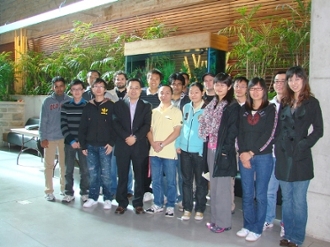Xianbin Wang
Contact
Department of Electrical and Computer Engineering
ACEB 4453
Western University
Tel: 519-661-2111 ext. 81298
Fax: 519-850-2436
xianbin.wang@uwo.ca
Research & Innovation
The fundamental goal of Professor Wang’s research is to create new wireless communications technologies for better supporting the emerging needs from industry and society. By integrating theoretical exploration, engineering innovation as well as intelligent operation of advanced wireless systems and networks, the main technical objective of his research is to achieve to intelligent, secure and reliable exchange of signals, data and knowledge among human and connected machines.
As a passionate innovator, Professor Wang has created many highly original concepts and engineering solutions by overcoming the most critical and complex issues of wireless communications, communication security, and industry IoT systems. He holds 35 granted and pending patents, with over 20 of them as the first and sole inventor. Several of his inventions and related pioneering concepts, including transmitter identification and data tranmission using superimposed signals (2004, 2007), multi-attributes continuous and interleaved authentication (2012), and a multi-functional integrated wireless network for indoor locationing, tracking and communications (2011), have spearheaded the creation and development of NOMA, physical layer security and ISAC.
Currenlty, Professor Wang and his research group are working on the following technical areas:
- 5G/6G technologies, particularly on intelligent utilization of communication and computing resources, heterogeneous service provisioning, opportunistic collaboration for task completion.
- Multi-Dimensional Resource Utilization
- ISAC and Heterogeneous Service Provsioning
- Goal-Oriented Communications
- Intelligent Networking, Channel Access and Machine Communications
- Heterogeneous Networks
- Device-Edge-Cloud Collaboration
- Machine-Learning Aided Operation and Orchestration
- Co-existence and Interference Minimization
- Integrated Security, Trust and Privacy Provisioning. These include intelligent trust and security evaulation and enhancement through exploring the device-specific, multi-dimensional, and context-related communication link attributes to overcome the vulnerabilities of conventional digital-credential based security mechanisms.
- Reliable Trust Evaluation for Effective Collaboration
- Authentication, Identification and Access Control
- Integrated Trust, Security and Privacy Provisioning
- Multi-attributes Cross-layer Security Mechanisms
- Situation-aware Confidentiality Enhancement
- Intrusion Detection and Trust/Privacy Management
- Machine Learning and AI for Connected Systems & Vertical Convergence
- Collaborative Learning and Computing
- Device-Edge-Cloud collaboration, resource management and task offloading
- Distributed Resource Orchestration and objective-driven collaboration
- Intellgient System Modeling, Operation and Orchestration
- Accurate Locationing and Network Synchronization
- Situation-awareness Discovery and Data Analytics
- Large-Schale Digital Twin Modelling and Utilization
- DSP/FPGA/SDR Prototypes Implementation
Research activities in Dr. Wang's goup are supported by various sponsors inclusing NSERC (Disocvery, Idea to Innovation, CRD, SPG, CREATE), Canada Research Chairs, Ontario Centres of Excellences, Canada Foundation for Innovation, industrial partners and the Canadian Defence sector.
My Research Group
 Dr. Wang currently supervises over 20 researchers at Western, manages more than 10 research projects and leads the Innovation Centre for Information Engineering and Laboratory for Emerging Communications Systems, which is supported by Canada Foundation for Innovation (CFI).
Dr. Wang currently supervises over 20 researchers at Western, manages more than 10 research projects and leads the Innovation Centre for Information Engineering and Laboratory for Emerging Communications Systems, which is supported by Canada Foundation for Innovation (CFI).
One recent research area in the group is the development of multi-dimensional multiple access (MDMA) to support diverse 5G/6G communications in the presence of dynamic electromagnetic interference, network traffic and user demand conditions. Dr. Wang and six researchers under his supervision have developed several responsive transmission techniques, which follow-up with real-time variations in frequency, space, time and code dimensions.
Another active area of Dr. Wang’s current research is the exploration of correlated “physical” properties of wireless devices and communication process for authentication enhancement. Thir pioneering work on device-specific, situation-related, and multi-attribute-based authentication techniques, have spearheaded new directions of wireless security.Their recent results on physical layer security directly address the long-standing wireless security vulnerabilities while significantly reducing security overhead. Several DSP/FPGA prototypes have been developed to verify these technologies, and several industrial partners have been engaged for commercialization purposes.

